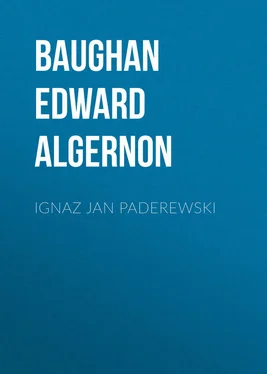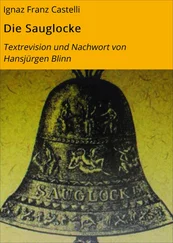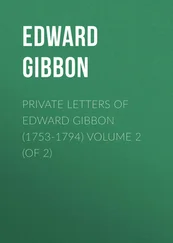Edward Baughan - Ignaz Jan Paderewski
Здесь есть возможность читать онлайн «Edward Baughan - Ignaz Jan Paderewski» — ознакомительный отрывок электронной книги совершенно бесплатно, а после прочтения отрывка купить полную версию. В некоторых случаях можно слушать аудио, скачать через торрент в формате fb2 и присутствует краткое содержание. Жанр: foreign_antique, foreign_prose, на английском языке. Описание произведения, (предисловие) а так же отзывы посетителей доступны на портале библиотеки ЛибКат.
- Название:Ignaz Jan Paderewski
- Автор:
- Жанр:
- Год:неизвестен
- ISBN:нет данных
- Рейтинг книги:3 / 5. Голосов: 1
-
Избранное:Добавить в избранное
- Отзывы:
-
Ваша оценка:
- 60
- 1
- 2
- 3
- 4
- 5
Ignaz Jan Paderewski: краткое содержание, описание и аннотация
Предлагаем к чтению аннотацию, описание, краткое содержание или предисловие (зависит от того, что написал сам автор книги «Ignaz Jan Paderewski»). Если вы не нашли необходимую информацию о книге — напишите в комментариях, мы постараемся отыскать её.
Ignaz Jan Paderewski — читать онлайн ознакомительный отрывок
Ниже представлен текст книги, разбитый по страницам. Система сохранения места последней прочитанной страницы, позволяет с удобством читать онлайн бесплатно книгу «Ignaz Jan Paderewski», без необходимости каждый раз заново искать на чём Вы остановились. Поставьте закладку, и сможете в любой момент перейти на страницу, на которой закончили чтение.
Интервал:
Закладка:
"The player's loudest tones," said the Times , "are by no means always beautiful, but the amount of fire and passion he gave to three of Chopin's most difficult studies and to certain passages in Schumann's Fantasia in C major produced a profound effect… It is in Chopin … M. Paderewski is at his best, and here not so much in the sentimental side of the master's work as in his passionate and fiery moods." On the whole the "notice" had much of praise for the new pianist. The Morning Post contented itself with the expression of opinion that the pianist's reading of compositions by Mendelssohn, Handel, Schumann, Chopin, Rubinstein, Liszt and Paderewski was "by no means conventional, nor was it always entirely artistic."
The Daily Telegraph contained the most important criticism of the new pianist. "Mr. Paderewski astonishes, and the good English public will run after him, no matter what the character of the astonishment may be… Mr. Paderewski is a monstrously powerful pianist, and herein lies his quality for the lover of marvels. The lover of music will sit at his feet on other grounds; but the main point is that the Polish artist appeals to both classes, and they comprise everybody… We do not pretend to much admiration for the Mr. Paderewski who astonishes. It was impossible to find any even for Rubinstein, when he appeared as a Cyclops wielding his hammers with superhuman energy, making the pianoforte shake to its centre, and not always hitting true and straight. That which was refused to the Moldavian Colossus is not likely to be secured by Mr. Paderewski, the less because he transcends his exemplar in fury and force of blow. It may safely be declared that no one present at St. James's Hall on Friday afternoon had ever before heard Mendelssohn's Prelude and Fugue in E minor so played – with clang and jangle of metal, and with such confusion of sound that trying to follow the working of the parts, resembled looking at moving machinery through a fog. It was the march of an abnormally active mammoth about the keyboard, while the wondering observer expected the pianoforte to break down at any moment." The critic (Mr. Joseph Bennett from internal evidence) had the same complaint to make of the performance of Handel's "Harmonious Blacksmith." "Plainly," the critic adds, "we do not like Mr. Paderewski as an exponent of physical force. The result of his labours may be marvellous but it is not music." After this castigation came praise. "There is another Mr. Paderewski whom we can well abide. He is gentle and pleasant, refined and poetic to a degree which makes him altogether charming. This, we suspect, must be the true Paderewski, the other being, in the old demoniacal sense, 'possessed.' If so, is there no power to cast out the evil spirit?" As examples of the "true Paderewski" the critic praised the playing of some Chopin compositions and two of the pianist's own pieces.
The critic of the Standard was quite as severe on the "sensational" aspects of Paderewski's playing. "It was quickly manifest," he wrote, "that the performer was more anxious to astonish than to charm. His rendering of a Prelude and Fugue in E minor of Mendelssohn was utterly at variance with the traditional methods of interpreting the music of this composer, and in Schumann's Fantasia in C, op. 17, we were constantly met by surprises. The playing was marked by violent contrasts, the pace and tone being sometimes reduced far more than the directions given by Schumann seem to warrant, while at others the physical powers of the executant were exercised in a manner that resulted in much noise, but little music. The same exaggerations of style were perceptible in Chopin's Etudes in C minor and F, op. 10, and G sharp minor, op. 25. It must be said in M. Paderewski's favour that he plays fewer wrong notes than most pianists of his school, and, further, that his tone in pianissimo passages is bell-like and delicate. He is, in brief, a virtuoso of no common order, but that he is entitled to the higher rank of an artist is more than can be said, judging from yesterday's performance." In a criticism of the third recital the critic still complained of Paderewski's occasional exaggeration, but on the whole the notice was a shade more appreciative, although London was still left in doubt as to whether the pianist was "entitled to the higher rank of artist."
The Daily News thought that the leonine attributes with which Paderewski was accredited in "his own advertisements" were "fully exemplified in the Prelude and Fugue of Mendelssohn which opened the programme. Mendelssohn of all composers can least bear heroic treatment from the ultra vigorous among modern pianists, and the Fugue especially suffered." The critic admired the pianist's Chopin playing, but added that "he was most in his element in his own music." The pianist's talent was thus summed up: "In short, of M. Paderewski's ability there can be no question; and while audiences will probably prefer the exquisite delicacy and poetical feeling which he displays in his calmer moments to the extravagance in which he indulges when in the Ercles vein, it is obvious that his talent lies chiefly in his interpretation of the music of the modern and romantic schools, in which during the current London season he bids fair to create some sensation." The critic thought that Paderewski somewhat modified his super-abundant energy at the second recital, which seems to have been the general opinion, and naturally was not shared by Mr. G. Bernard Shaw, who had just begun to write musical criticism for the World . "There is Paderewski, a man of various moods, who was alert, humorous, delightful at his first recital; sensational, empty, vulgar and violent at his second; and dignified, intelligent, almost sympathetic at his third. He is always sure of his notes; but the licence of his tempo rubato goes beyond all reasonable limits." The "almost sympathetic" is distinctly good. With the exception of the World the weekly papers were not at that time remarkable for their musical criticism, but it may be mentioned that the Saturday Review ventured to state that no one who had heard Paderewski at the second recital would deny that "he is one of the most remarkable artists who has been heard of late years."
Конец ознакомительного фрагмента.
Текст предоставлен ООО «ЛитРес».
Прочитайте эту книгу целиком, купив полную легальную версию на ЛитРес.
Безопасно оплатить книгу можно банковской картой Visa, MasterCard, Maestro, со счета мобильного телефона, с платежного терминала, в салоне МТС или Связной, через PayPal, WebMoney, Яндекс.Деньги, QIWI Кошелек, бонусными картами или другим удобным Вам способом.
Интервал:
Закладка:
Похожие книги на «Ignaz Jan Paderewski»
Представляем Вашему вниманию похожие книги на «Ignaz Jan Paderewski» списком для выбора. Мы отобрали схожую по названию и смыслу литературу в надежде предоставить читателям больше вариантов отыскать новые, интересные, ещё непрочитанные произведения.
Обсуждение, отзывы о книге «Ignaz Jan Paderewski» и просто собственные мнения читателей. Оставьте ваши комментарии, напишите, что Вы думаете о произведении, его смысле или главных героях. Укажите что конкретно понравилось, а что нет, и почему Вы так считаете.












